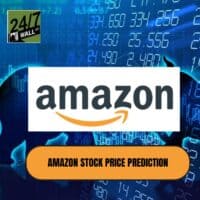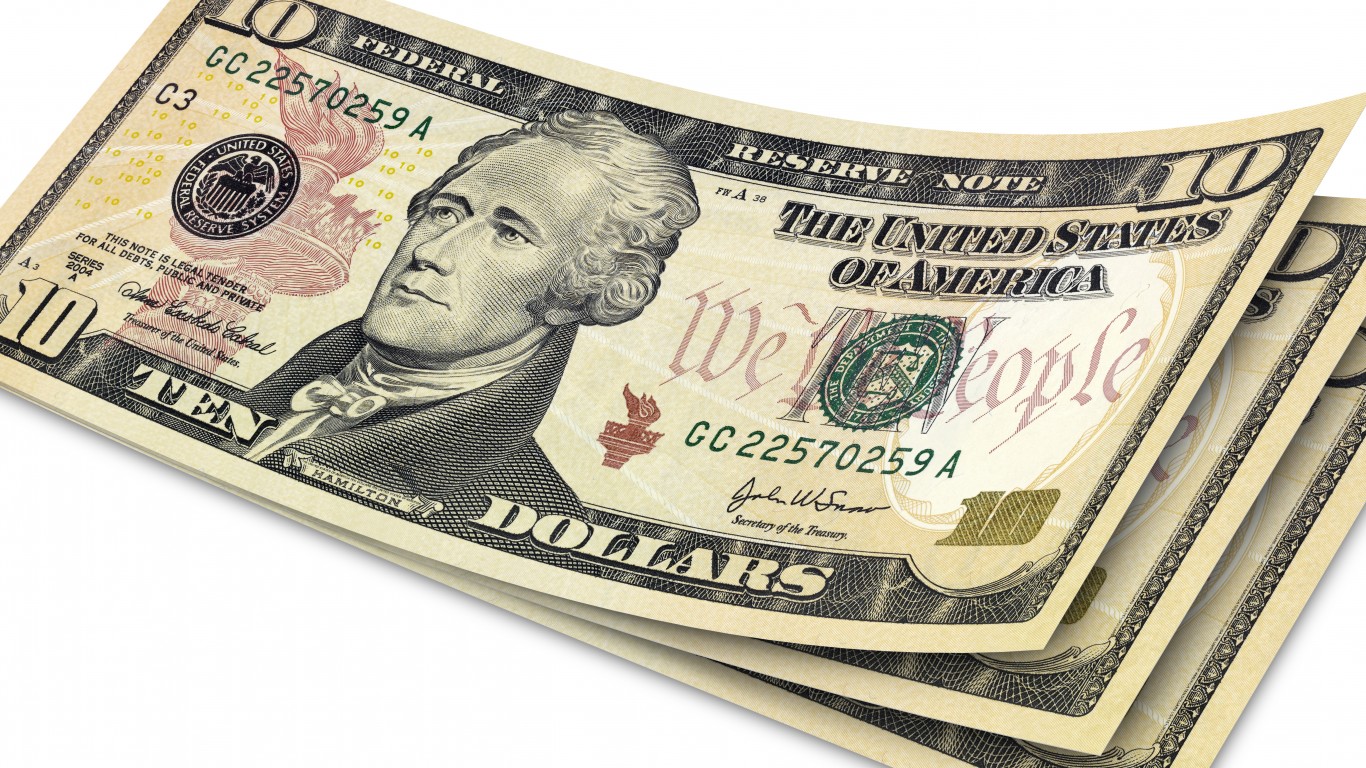
By Steve Rogers
ESG investors base their investment strategy on environmental, social, and governance criteria. Different investors may interpret these goals in different ways, but overall the goal is to avoid investing in companies that engage in harmful practices and focus on those that do good. The best ESG ETFs provide an easy, convenient way to pursue these goals.
An Exchange-traded fund or ETF is a basket of securities, usually tracking a specific index. The fund manager issues shares that trade freely on exchanges and can be bought and sold at any time. The best ESG ETFs offer a simple, cost-effective way to move into ESG investing.
The Best ESG ETFs
If you’re looking for a simple, accessible entry point to ESG investing, here are seven top options, including three general ESG ETFs and four ETFs focused on specific issues.
Best for Low Cost and Diversification—Vanguard ESG US Stock ETF (ESGV)
The Vanguard ESG US Stock ETF (ESGV) is a large, highly diversified fund designed to replicate the performance of the Financial Times Stock Index (FTSE) US All Cap Choice Index. It includes a large number of holdings and has the lowest management fee of any large ESG fund we looked at. The ESG criteria are basic but if you’re looking for a single diversified low-cost fund this is a great option.
| Expense Ratio | 0.09% |
| 3-year Return | 19.78%/year |
| Number of Holdings | 1,475 |
| Assets Under Management | $6.1 billion |
| Shares Outstanding | 79 million |
Best for Global Exposure—iShares MSCI Global Impact ETF (SDG)
The iShares MSCI Global Impact ETF (SDG) RTF invests in companies that advance themes related to the United Nations Development Goals. This includes environmental goals but also many other factors, notably healthcare, education, and human rights. It holds an internationally diversified portfolio.
| Expense Ratio | 0.49% |
| 3-year Return | 21.35%/year |
| Number of Holdings | 153 |
| Assets Under Management | $463.1 million |
| Shares Outstanding | 5.35 million |
Best Environmental Fund—Invesco MSCI Sustainable Future (ERTH)
The Invesco MSCI Sustainable Future (ERTH) fund invests at least 90% of its capital in stocks of companies in the MSCI Global Environment Select Index. This provides broad, globally diversified exposure to companies across a wide range of environmental concerns.
| Expense Ratio | 0.55% |
| 3-year Return | 18.86% |
| Number of Holdings | 155 |
| Assets Under Management | $433.1 million |
| Shares Outstanding | 7.05 million |
Best Clean Energy Fund—iShares Global Clean Energy ETF (ICLN)
The iShares Global Clean Energy ETF (ICLN) is designed to provide exposure to a worldwide selection of companies producing energy from solar, wind, and other resources. This narrow focus necessarily reduces the number of holdings: this is not a diversified fund and will appeal to investors who are specifically concerned with Clean Energy and want global exposure.
| Expense Ratio | 0.42% |
| 3-year Return | 38.29%/year |
| Number of Holdings | 76 |
| Assets Under Management | $5.66 billion |
| Shares Outstanding | 263.8 million |
Best Gender-Specific ETF—SPDR SSGA Gender Diversity (SHE)
The SPDR SSGA Gender Diversity (SHE) ETF invests at least 80% of its holdings in stocks belonging to the SSGA Diversity Index. The index ranks US companies according to their leadership role in building gender diversity in management and in their boards of directors. These are very specific criteria and they may not meet other ESG screens, but if you are specifically interested in companies that empower women, this is a good low-cost start.
| Expense Ratio | 0.20% |
| 3-year Return | 17.03%/year |
| Number of Holdings | 192 |
| Assets Under Management | $257.97 million |
| Shares Outstanding | 2.8 million |
Focus on Minority Empowerment—NAACP Minority Empowerment ETF (NACP)
The NAACP Minority Empowerment ETF (NACP) is a product of Impact Shares, a provider of specialized ESG ETFs. It’s an easy choice for this category: it’s the only ETF currently focused specifically on companies with strong records of supporting racial and ethnic diversity. The fund tracks the Morningstar Minority Empowerment Index.
| Expense Ratio | 0.49% |
| 3-year Return | 20.29% |
| Number of Holdings | 222 |
| Assets Under Management | $41.78 million |
| Shares Outstanding | 1.25 million |
Vanguard ESG US Stock ETF (ESGV)
Best For Low Cost and Diversification
The Vanguard ESG US Stock ETF is a large, highly diversified fund with very low management costs. It tracks a broad index composed of large-cap, mid-cap, and small-cap stocks. It’s a passively-managed fund, which is why Vanguard is able to keep the expense ratio so low.
The ESG screening process used by the fund is quite basic and relies entirely on negative screening. The fund omits the following asset classes:
- Companies dealing with adult entertainment, alcohol, tobacco, weapons, fossil fuels, gambling, and nuclear power.
- Companies with a record of violating environmental, human rights, anti-corruption, and labor rights standards set by the UN Global Compact.
- Companies that do not meet diversity criteria.
The fund is heavily weighted toward US companies, with 98.3% of holdings in the US.
Like many ESG funds, ESGV is heavily invested in major tech companies. The top five holdings as of April 4, 2022 were:
| Company | Percentage of Net Assets |
|---|---|
| Apple Inc. | 7.06 |
| Microsoft Corp. | 6.24 |
| Amazon.com Inc. | 3.7 |
| Alphabet Inc. (Class C shares) | 2.4 |
| Tesla Inc. | 1.95 |
Investors with strict ESG criteria may wish to select a fund with more aggressive screening procedures. For example, some investors might be reluctant to invest in Amazon, given the company’s labor issues and questions about their relationship with unions.
This is one of the best ESG ETFs for investors who are satisfied with a basic ESG screen weeding out the most distasteful companies, especially if they are looking for a very low-cost fund with a high level of diversification and high liquidity. Vanguard has a reputation for producing low-cost ETFs, and this fund’s 0.09% expense ratio was the lowest we could find in a major ESG fund.
iShares MSCI Global Impact ETF (SDG)
Best for Global Exposure
The iShares MSCI Global Impact ETF is designed to track the results of the MSCI ACWI Sustainable Impact Index. The companies in the index must draw a majority of their sales from goods and services that address at least one of the major environmental and social problems identified in the UN Sustainable Development Goals.
This focus opens up a huge range of investment opportunities, allowing very considerable diversification. The UN has identified 17 Sustainable Development Goals across fields ranging from the environment to healthcare, education, employment, poverty reduction, gender equality, and more. The fund publishes regular detailed scorecards assessing its carbon intensity, climate impact, and other metrics.
Along with actively seeking companies that advance these goals, the fund also screens out companies that exceed fixed targets for revenues from the manufacture or sale of alcohol, weapons, nuclear weapons, predatory lending, and tobacco.
SDG is a globally diversified fund with exposure in multiple markets.
- United States: 28.4%
- Europe: 32%
- Asia: 31%
- Canada: 5.1%
- Latin America: 2.3%
- Australasia: 1.1%
- Middle East: 1.1%
These are the fund’s top 5 holdings:
| Company | Percentage of Net Assets |
|---|---|
| Vestas Wind Systems | 4.61 |
| Umicore SA | 4.41 |
| Johnson Matthey PLC | 4.06 |
| Novartis AG | 4.04 |
| Daiwa House Industry | 3.65 |
The wide ESG criteria and global focus of the fund allow very substantial diversification, which may be absent in more specialized ESG funds. This is one of the best ESG ETFs for investors whose ESG priorities focus on world development and who are looking for a fund large enough to assure liquidity.
The main downside here is the expense ratio. It’s not astronomical but this remains one of the more expensive funds on this list.
Invesco MSCI Sustainable Future (ERTH)
Best Environmental Fund
Invesco MSCI Sustainable Future is a broad environment-focused fund with exposure to companies involved in a broad spectrum of environment-related businesses.
The fund is built around the MSCI Global Environment Select Index, with at least 90% of its assets invested in shares belonging to that index. The index is focused on six main environmental impact themes:
- Alternative Energy
- Energy Efficiency
- Green Building
- Sustainable Water
- Pollution Prevention and Control
- Sustainable Agriculture
The fund is globally diversified, with 35.8% of its holdings in the US, 33.4% is Asia, 24.4% in Europe, 3.1% in Canada, 2.2% in Latin America, and 0.6% in the Middle East. The fund is weighted toward growth stocks, with large-cap growth shares making up 26.35% of holdings and mid-cap growth 20.27%
The fund’s top five holdings are:
| Company | Percentage of Net Assets |
|---|---|
| Vestas Wind Systems | 5.74 |
| Tesla Inc. | 5.7 |
| Digital Realty Trust Inc. | 5.26 |
| Enphase Energy Inc. | 4.95 |
| Nio Inc. ADR | 4.16 |
This is one of the best ESG ETFs for investors who want a broad environmental focus with global exposure. Its holdings are broader than those of environment funds specifically focused on clean energy or climate concerns, allowing a higher degree of diversification.
The expense ratio is 0.55%, which is the highest on this list but still moderate compared to specialized ETFs overall.
iShares Global Clean Energy ETF (ICLN)
Best Clean Energy Fund
The iShares Global Clean Energy ETF tracks the performance of the S&P Global Clean Energy Index and invests at least 80% of its assets in companies that are part of that index. This is a relatively specialized fund but the global focus and the wide range of opportunities available within the “clean energy” focus area allow a reasonable degree of diversification.
Aside from the clean energy focus, the fund employs negative screens, with no exposure in the following categories:
- Controversial Weapons
- Nuclear Weapons
- Civilian Firearms
- Tobacco
- UN Global Compact Violators
- Thermal Coal
- Oil Sands
As its name implies, this is a global fund, with 40.9% of its holdings in the US, 39% in Europe, 10.2% in Asia, 6.4% in Canada, 2.8% in Latin America, and 0.7% in the Middle East.
These are the top five holdings:
| Company | Percentage of Net Assets |
|---|---|
| Enphase Energy Inc. | 9.13 |
| Vestas Wind Systems | 7.77 |
| Consolidated Edison Inc. | 6.25 |
| Orsted | 6.04 |
| Solaredge Technologies Inc. | 5.68 |
The fund has a relatively concentrated portfolio, with an unusually high 34.87% of assets concentrated on the top five holdings.
With shares in 76 companies around the world, this fund offers a diverse range of holdings within the clean energy industry and is one of the best ESG ETFs for investors who are looking for selected clean energy investments that also pass a general ESG screen. It’s not a low-cost fund, but at 0.42% its expense ratio is quite reasonable for a specialized ETF.
SPDR SSGA Gender Diversity (SHE)
Best Gender-Specific ETF
The SPDR SSGA Gender Diversity ETF invests in large companies that promote the elevation of women to executive positions.
The fund’s selection process involves scanning the 1000 largest US public companies to determine the percentages of board seats and senior executive positions (Senior VP or above). The fund limits investments to the top 10% of this sector based on this screen, with each company required to have at least one woman on the board of directors or as CEO.
This is a focused fund but the focus is not defined by the business sector or the products and services a company produces. This allows a very high degree of sector diversification.
- Technology: 19.3%
- Financial Services: 16.13%
- Healthcare: 15.78%
- Consumer Cyclical: 9.82%
- Industrials: 9.51%
- Communication Services: 9,32%
- Consumer Defensive: 6.86%
The balance of the fund is divided among other sectors holding less than 5% of total assets, including Basic Materials, Energy, Real Estate, and Utilities.
The fund is heavily US-focused, with 98.4% of holdings in the US. Here are the fund’s top five holdings:
| Company | Percentage of Net Assets |
|---|---|
| United Health Group Inc. | 6.26 |
| Visa Inc. Class A | 5.21 |
| Salesforce.com Inc. | 4.37 |
| Walt Disney Company | 4.31 |
| Netflix Inc. | 3.13 |
The high level of diversification means that this fund effectively tracks the US large-cap market, making it a solid and ESG-friendly choice for a low risk tolerance portfolio. The SPDR SSGA Gender Diversity ETF also boasts a very competitive 0.20% expense ratio, which is very low for a sector-specific ESG fund.
NAACP Minority Empowerment ETF
Focus on Minority Empowerment
NAACP Minority Empowerment ETF is one of a kind: the only ESG fund we could locate specifically dedicated to investment in firms that empower minority Americans.
The fund tracks the Morningstar Minority Empowerment Index, which focuses on companies with effective racial and ethnic diversity policies. The fund selects large and mid-cap US companies across a spectrum of industries. The fund’s website does not mention other ESG screens, so it is not clear whether companies comply with other ESG criteria.
The fund provider, Impact Shares, is a 501(c)(3) nonprofit organization. All profits derived from management fees are donated to the NAACP, providing an additional boost to minority interests.
The screening process allows considerable diversity across economic sectors, though there is a strong weighting toward technology.
- Technology: 28.86%
- Healthcare: 13.51%
- Consumer Cyclical: 13.04%
- Financial Services: 11.01%
- Industrials: 6.95%
The balance of the fund’s holdings is spread across several sectors with weightings under 5%, including Basic Materials, Consumer Defensive, Energy, Real Estate, and Utilities. These are the fund’s top five holdings:
| Company | Percentage of Net Assets |
|---|---|
| Apple Inc. | 5.3 |
| Microsoft Corp. | 4.78 |
| Amazon.com Inc. | 4.53 |
| Tesla Inc. | 3.63 |
| Nvidia Corp. | 2.91 |
The fund’s emphasis on large tech companies is very visible in that list. Essentially this is a tech-weighted US large-cap/mid-cap selection with a specific ESG component. It’s not clear whether other ESG screens are applied.
The expense ratio is 0.49%, on the high side for this list but (again) quite moderate for a targeted ESG ETF. As an added bonus, profits from management fees are donated to the NAACP.
This is one of the best ESG ETFs for investors who are concerned with minority rights and who want a solid, conservative, diversified US-dominated fund.
How We Ranked the Best ESG ETFs
We looked at several criteria while ranking these funds, which are explained in greater detail below. It’s important to note that to some extent these will vary with the type of fund you are looking for. A fund specialized in a particular ESG sector will have a higher expense ratio and less diversification than a fund with a broader focus.
A low score in any of these areas is not necessarily a bad thing. It’s just a factor to consider and to weigh against other similar funds. If you want a fund focused on clean energy you’ll have less opportunity for diversification than you would with a fund spanning the full range of ESG concerns.
Note: We did not try to rank these funds according to any ESG-specific criteria. Different investors have different levels of desired screening, so we can’t say any level of screening is “better”. The key here is to look for funds that match your personal goals.
We also looked at fairly prominent funds involved in multiple markets with substantial assets under management. If you are looking for funds meeting very specific ESG criteria it may be worth your while to look at smaller boutique funds, but you’ll have to settle for higher management fees and lower levels of liquidity.
Expense Ratio
The expense ratio is the total of all fees paid by an investor in an ETF. An expense ratio of 1 means you pay 1% of the value of your investment every year as a management fee, whether the fund gains or loses in value.
Broad funds that closely track an index usually have lower management fees than targeted ETFs that seek specific investment criteria. We looked for the lowest fees we could find in each type of ETF.
Returns
We looked at the average annual return of the fund over a 3-year period. Please note that the last 3 years have been dominated by a bull market, and these returns may not be duplicated in any future period. For reference, the average annual return for an S&P 500 index ETF has been 18.52% over the last three years.
Most of the funds in this list show returns close to or above that level.
Number of Holdings
The number of stocks an ETF holds is an indication of its diversification. This figure will be higher in very general funds and lower in very specific funds. If you’re looking for exposure in a certain sector you won’t be concerned with diversification, so you will be less concerned with this indicator.
Assets Under Management and Shares Outstanding
These indicators describe the size of the fund. A fund with high figures in these categories will be highly liquid: there will be a lot of trading action so if you want to sell you are more likely to be able to find a buyer who is willing to pay what you want to sell for.
Less liquid funds may have a wider spread between the bid and the ask for the shares. If an ETF is very small and specialized with little trading you may have a harder time selling your shares. Some investors may be willing to take this risk to have a fund that precisely matches their ESG criteria, but it is always a factor to consider in your evaluation.
Originally published at ValueWalk.
Travel Cards Are Getting Too Good To Ignore (sponsored)
Credit card companies are pulling out all the stops, with the issuers are offering insane travel rewards and perks.
We’re talking huge sign-up bonuses, points on every purchase, and benefits like lounge access, travel credits, and free hotel nights. For travelers, these rewards can add up to thousands of dollars in flights, upgrades, and luxury experiences every year.
It’s like getting paid to travel — and it’s available to qualified borrowers who know where to look.
We’ve rounded up some of the best travel credit cards on the market. Click here to see the list. Don’t miss these offers — they won’t be this good forever.
Thank you for reading! Have some feedback for us?
Contact the 24/7 Wall St. editorial team.





